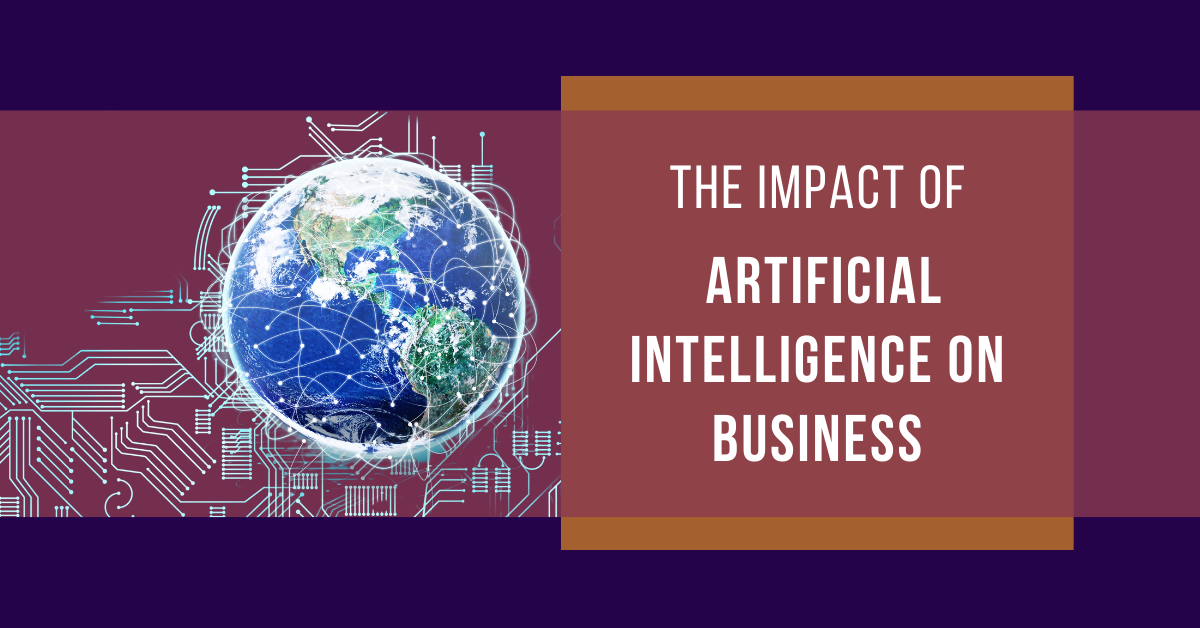Impact of Artificial intelligence (AI) has become a buzzword in the business world in recent years, with many organizations exploring its potential to improve their operations and gain a competitive edge. AI refers to the simulation of human intelligence in machines that are programmed to perform tasks that typically require human cognitive abilities, such as learning, problem-solving, and decision-making. In this article, we’ll discuss the implications and opportunities of AI for businesses.
Table of Contents
Opportunities of AI for Business
AI has the potential to revolutionize the way businesses operate, by enabling them to:
- Improve efficiency and productivity: AI can automate repetitive tasks, freeing up employees to focus on more strategic and creative work. For example, businesses can use AI-powered chatbots to handle customer inquiries, reducing the workload of customer service representatives.
- Enhance customer experience: AI can help businesses personalize their customer interactions, improving customer satisfaction and loyalty. For example, businesses can use AI algorithms to analyze customer data and offer personalized product recommendations.
- Increase accuracy and reduce errors: AI algorithms can process large volumes of data much faster than humans, reducing the risk of errors and improving the accuracy of business decisions.
- Drive innovation: AI can help businesses identify new market opportunities, optimize product design, and develop new products and services.
Read More: Unlocking the Power of Search Engine Optimization: Strategies for Driving Traffic
Challenges of AI for Business
While the opportunities of AI are significant, there are also several challenges that businesses need to consider:
- Data privacy and security: AI relies on large volumes of data to learn and make decisions. Businesses need to ensure that their data collection and usage practices are compliant with relevant regulations and ethical principles.
- Skills gap: AI requires specialized skills, such as data science, machine learning, and programming. Businesses need to invest in upskilling their workforce or hiring experts to develop and implement AI solutions.
- Bias and ethical concerns: AI algorithms can perpetuate existing biases or create new ones. Businesses need to ensure that their AI systems are designed and tested to avoid bias and to address any ethical concerns.
- Cost: Implementing AI solutions can be costly, requiring significant investment in technology infrastructure and human resources.
Advantages:
- Increased efficiency: AI can automate repetitive tasks, freeing up employees to focus on more strategic work. This can lead to significant time savings and increased productivity.
- Improved accuracy: AI algorithms can process large volumes of data much faster than humans, reducing the risk of errors and improving the accuracy of business decisions.
- Enhanced customer experience: AI can help businesses personalize their customer interactions, improving customer satisfaction and loyalty. For example, businesses can use AI algorithms to analyze customer data and offer personalized product recommendations.
- New insights and opportunities: AI can help businesses identify new market opportunities, optimize product design, and develop new products and services.
- Cost savings: By automating tasks and improving accuracy, AI can help businesses reduce costs and improve profitability.
- Competitive advantage: Businesses that successfully integrate AI into their operations can gain a competitive advantage over those that do not. This can lead to increased market share and revenue growth.
Overall, the rise of AI offers significant advantages for businesses of all sizes and industries. By leveraging AI technologies, businesses can streamline their operations, improve customer experience, and gain a competitive edge in the digital age.
Read More: Why Windows 10 is the Most Secure Windows Ever: A Comprehensive Guide
conclusion:
the rise of artificial intelligence represents a significant opportunity for businesses to transform their operations and gain a competitive advantage. By leveraging AI technologies, businesses can improve efficiency and productivity, enhance customer experience, increase accuracy, and drive innovation. However, the implementation of AI also comes with several challenges, including data privacy and security, skills gap, bias and ethical concerns, and cost. To reap the benefits of AI while mitigating these challenges, businesses need to develop a comprehensive strategy that addresses these issues and leverages the full potential of AI. Ultimately, those businesses that successfully integrate AI into their operations will be well-positioned to thrive in the digital age and lead the way in their industries.


